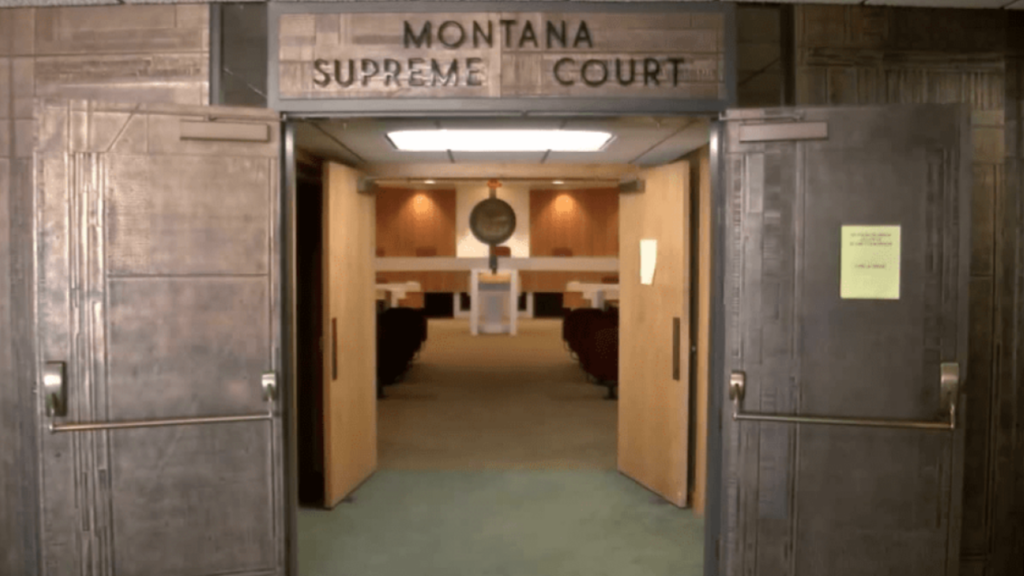Montana’s High Court Rules Utility Cannot Discriminate Against Solar Energy

Court’s decision reopens door to independent solar projects in the state
Helena, Mont. — The Montana Supreme Court today rejected NorthWestern Energy’s attempts to shut out competition from local or customer-owned solar projects that would help meet Montana’s electricity needs. Both Montana and federal law prohibit discrimination against independently owned clean energy projects.
NorthWestern Energy requested the Montana Public Service Commission to slash rates it pays to small solar projects to well below the value they create, a request the commission granted in 2017. In today’s ruling, the Court found that decision violated the law against rate discrimination. The court also found that the commission improperly reduced contract lengths for these renewable energy projects and has reset them to 25 years.
According to the decision, “NorthWestern’s frequently-uttered trope that the requirements of [federal law] and thus approval of solar sources of energy will wildly increase the rates charged to consumers finds little basis of support in this record.”
The Court’s decision was in response to a lawsuit filed by Montana Environmental Information Center and Vote Solar, represented by Earthjustice.
“This decision benefits all Montanans by giving clean energy resources a fair opportunity to compete with the dirty fossil fuels favored by NorthWestern,” said Earthjustice attorney Jenny Harbine, who represented clean-energy advocates in the case. “This decision is an important step in beating back NorthWestern’s ongoing attempts to kill competition from clean and affordable renewables.”
The ruling affirms an earlier decision by a state district court, which noted that the very low rates were set “to make such renewable energy development economically unfeasible, and thereby eliminate competition.” Since the Commission’s 2017 decision, no utility-scale solar energy projects have been built in Montana. During this same period, NorthWestern Energy has proposed to increase its ownership interest in the Colstrip coal plant and released a plan to build several new gas-fired power plants.
The Court’s decision is an important step to reopening the door to independent solar development projects in Montana, which will create new jobs, tax revenue, and clean energy across the state.
“Solar projects can create new jobs, tax revenue, and affordable clean energy across Montana if given a fair chance,” said Brian Fadie, clean energy program director for the Montana Environmental Information Center. “Counties like Cascade, Sweet Grass, and Lewis & Clark have already seen these benefits with projects built prior to NorthWestern’s attacks on solar energy. With this ruling, even more counties can benefit.”
“Today the Court confirmed that Montanans deserve access to low-cost, clean solar power to supply their energy needs,” said Sachu Constantine, Managing Director with Vote Solar. “Now that small-scale, homegrown solar is competitive, some monopoly utilities are attempting to change the rules of the game to limit our solar choices and avoid competition. We are pleased to see the Court uphold the law and the best interest of Montana’s families and businesses by bringing solar opportunity back to Big Sky Country.”
NorthWestern’s attacks on renewable energy have been a recurring theme. The Montana Supreme Court is expected to issue a ruling any day in a case challenging NorthWestern’s refusal to purchase energy from Montana-owned “community renewable energy projects,” as required by state law. And clean energy advocates are currently arguing that the Montana Public Service Commission should reject NorthWestern’s attempts to again cut rates for small solar and wind projects, to levels even below those the Supreme Court today found were unlawful.
The Montana’s Supreme Court’s decision today sends a strong signal that NorthWestern’s more recent attacks are also unlawful.

